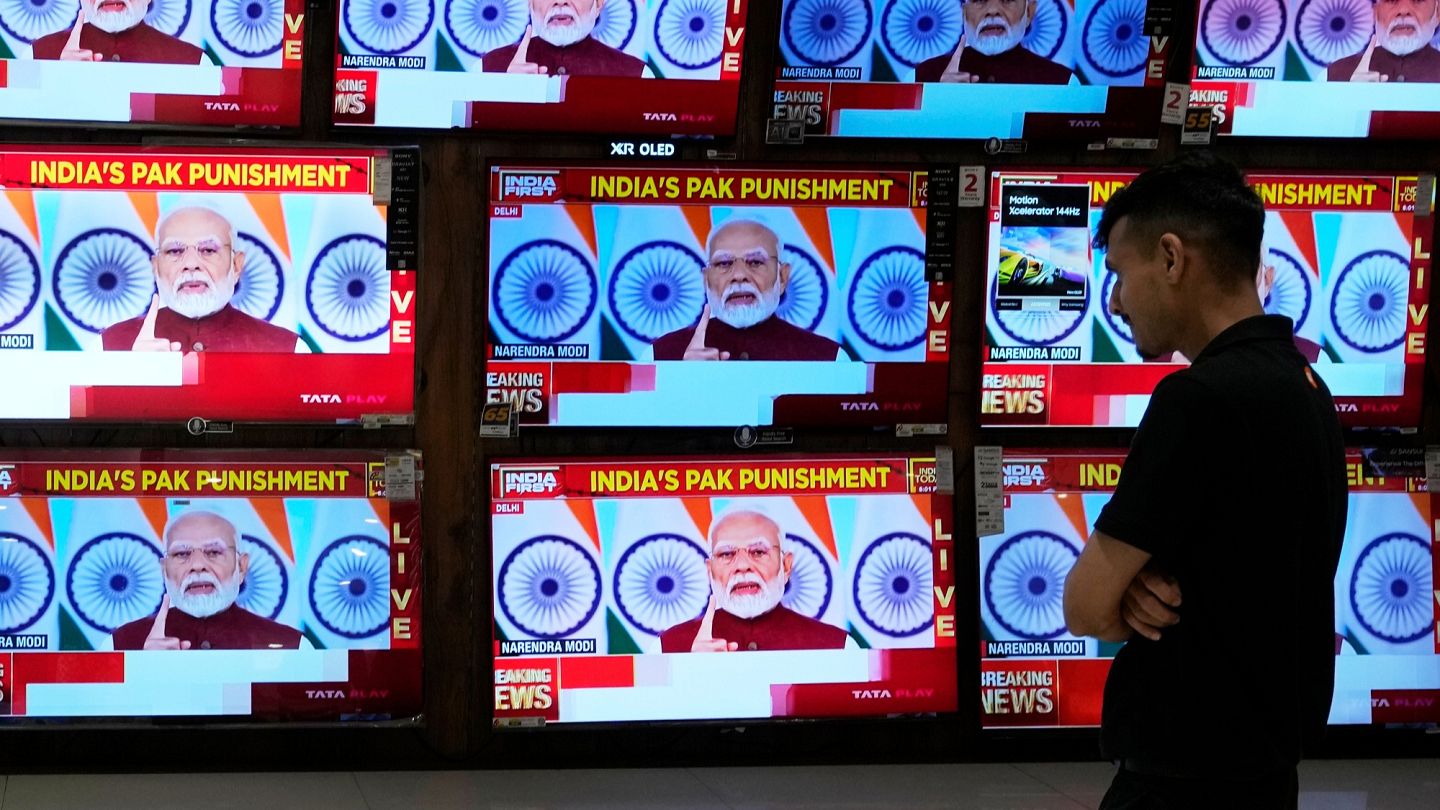Modi says India only 'paused' its offensive as ceasefire with Pakistan holds
The most serious direct conflict between India and Pakistan in decades has been halted for now, but tensions remain high.
India has only "paused" its military action and will "retaliate on its own terms" if there is any future terror attack on the country, Prime Minister Narendra Modi said in his first public comments since a US-brokered ceasefire began over the weekend.Modi made the remarks in a televised address on Monday night after Indian and Pakistani authorities said there was no firing reported overnight along the heavily militarised region between their countries — the first time in recent days the nations were not shooting at each other.The escalating hostilities between the nuclear-armed rivals after that began a deadly attack on tourists in Kashmir have threatened regional peace and caused alarm around the world. India accuses Pakistan of backing the militants who carried out the massacre, a charge Islamabad denies."We will be monitoring every step of Pakistan," Modi said in his speech, adding that if India talks to Pakistan directly, it will be only about terrorism and Pakistan-controlled Kashmir.Both countries administer parts of Kashmir, and both claim it in its entirety."Terror and talks can't go together," Modi said. "Nor can terror and trade." He did not acknowledge US President Donald Trump's offer to mediate.India and Pakistan reached an understanding to stop all military action on land, in the air and at the sea on Saturday.According to a Pakistani government statement, Prime Minister Shehbaz Sharif said his country agreed to the ceasefire "in the spirit of peace", but also that it will never tolerate violations of its sovereignty and territorial integrity.'The night remained largely peaceful'Senior military officials from India and Pakistan spoke via a hotline on Monday to assess whether the ceasefire was holding and how to ensure its implementation.In a statement, the Indian army said the officials committed to not "firing a single shot" or initiating aggressive action, and that the two sides had agreed to consider immediately reducing the number of troops in border and forward areas."The night remained largely peaceful across Jammu and Kashmir, and other areas along the international border," the Indian army said, adding that no incidents had been reported.Local government officials in Pakistan-administered Kashmir reported no incidents of cross-border firing along the Line of Control — the de facto border that divides the disputed Kashmir region between India and Pakistan — and said civilians displaced by recent skirmishes were returning to their homes.The fighting that began on Wednesday represented the two countries' most serious confrontation in decades. After India launched its airstrikes on Pakistan, both sides exchanged heavy fire in Kashmir followed by missile and drone strikes into each other's territories, mainly targeting military installations and airbases.Dozens of civilians were killed on both sides, the two countries said.The Indian military on Sunday claimed that its strikes had killed more than 100 militants, including prominent leaders.Air Chief Marshal AK Bharti, the director general of India's air operations, told a news conference on Monday that despite "minor damage incurred, all our military bases and air defence systems continue to remain fully operational, and ready to undertake any further missions, should the need so arise".Bharti reiterated that New Delhi's fight was "with terrorists, and not with Pakistan's military or its civilians".


